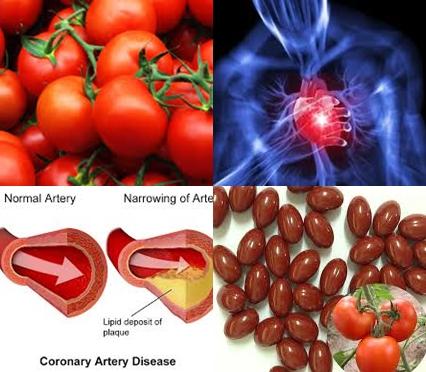
Objectives:
Do consuming tomato products and lycopene supplementation reduce cardiovascular risk among adult subjects >18 years of age?
Study design:
This review article included 21 studies.
Results and conclusions:
The investigators found consuming tomato was associated with a significant reduction of 0.22 mmol/L in LDL-cholesterol [p = 0.006]. Significant means, there is an association at a 95% confidence.
The investigators found consuming tomato was associated with a significant reduction of 0.25 in plasma IL-6 concentration [p = 0.03].
The investigators found consuming tomato was associated with a significant improvement of 2.53% in flow-mediated dilation (FMD) [p = 0.01].
The investigators found lycopene supplementation reduced systolic blood pressure with 5.66 mmHg [p = 0.002].
The investigators found no other outcome was significantly affected by these interventions.
The investigators concluded consuming tomato products and lycopene supplementation had positive effects on blood lipids, blood pressure and endothelial function. These results support the development of promising individualised nutritional strategies involving tomatoes to tackle cardiovascular diseases.
Original title:
Tomato and lycopene supplementation and cardiovascular risk factors: A systematic review and meta-analysis by Cheng HM, Koutsidis G, […], Lara J.
Link:
https://www.ncbi.nlm.nih.gov/pubmed/28129549
Additional information of El Mondo:
Find here more information/studies about vegetable consumption, carotenoids and cardiovascular diseases.
Impaired endothelial function is an early indicator of atherosclerosis. Endothelial function is often quantified by flow-mediated dilation (FMD), which represents the endothelium-dependent relaxation of a conduit artery-typically the brachial artery - due to an increased blood flow. Flow-mediated dilation (FMD) is endothelium-dependent and can be assessed by ultrasound in the brachial artery.